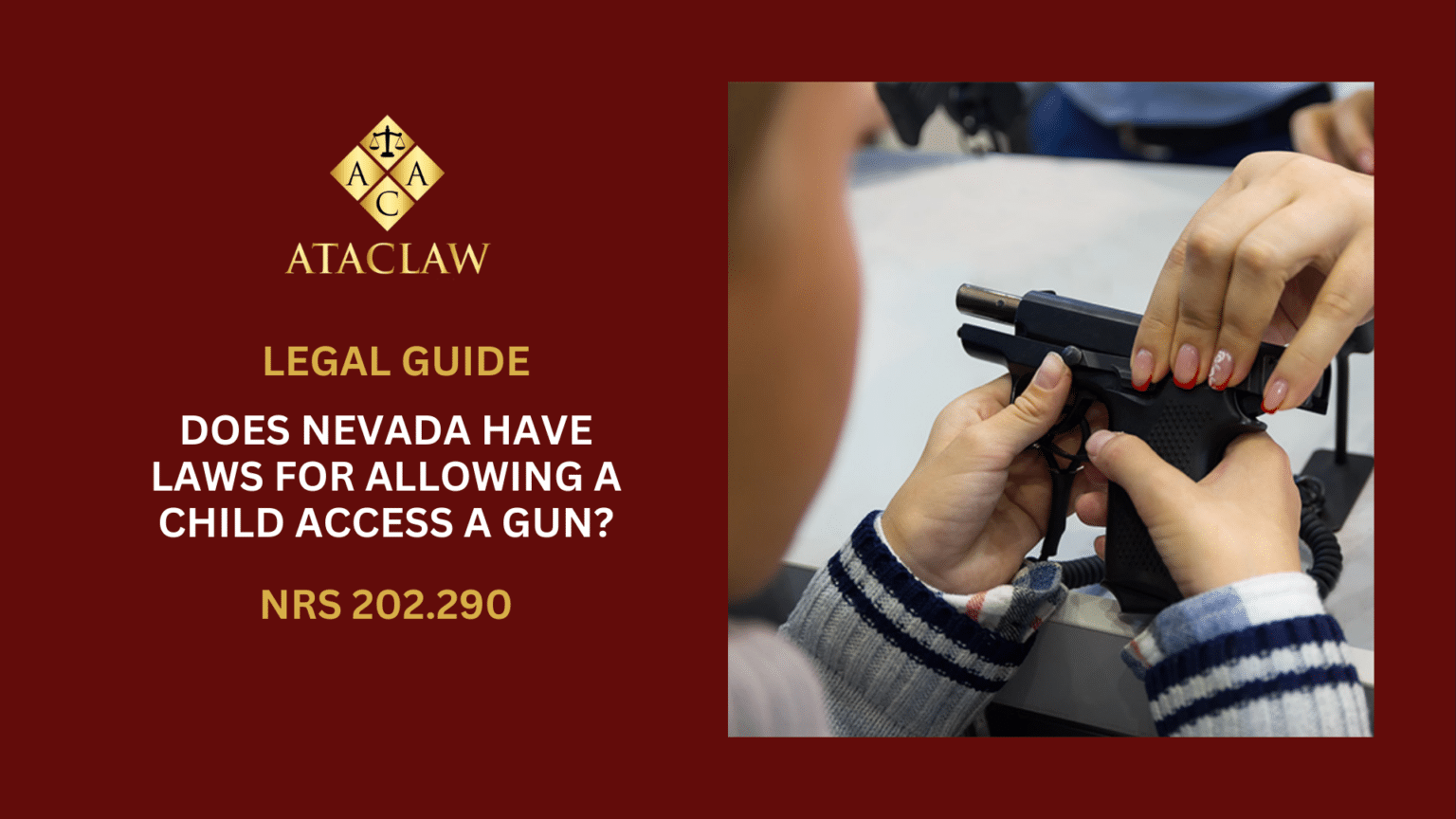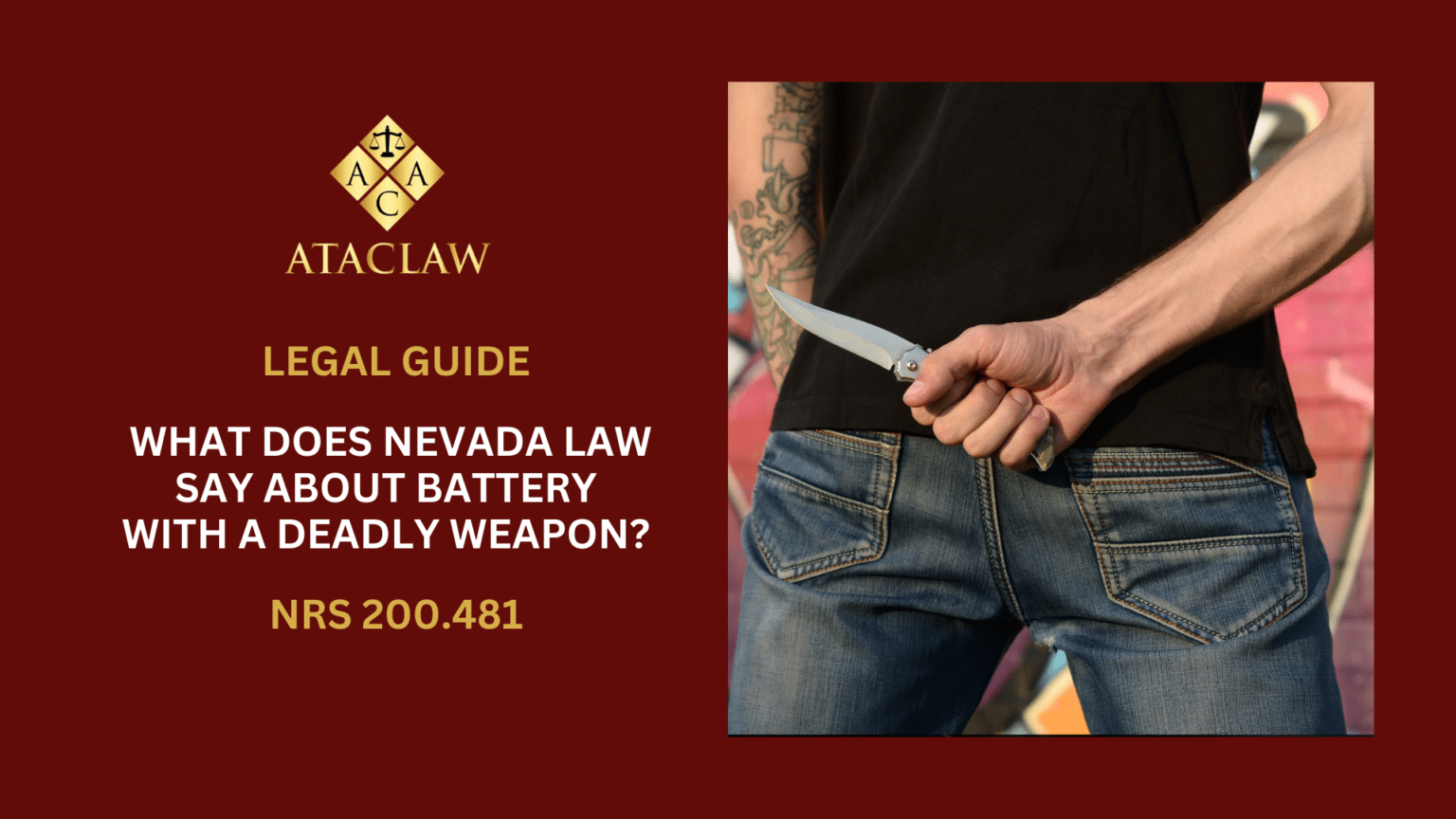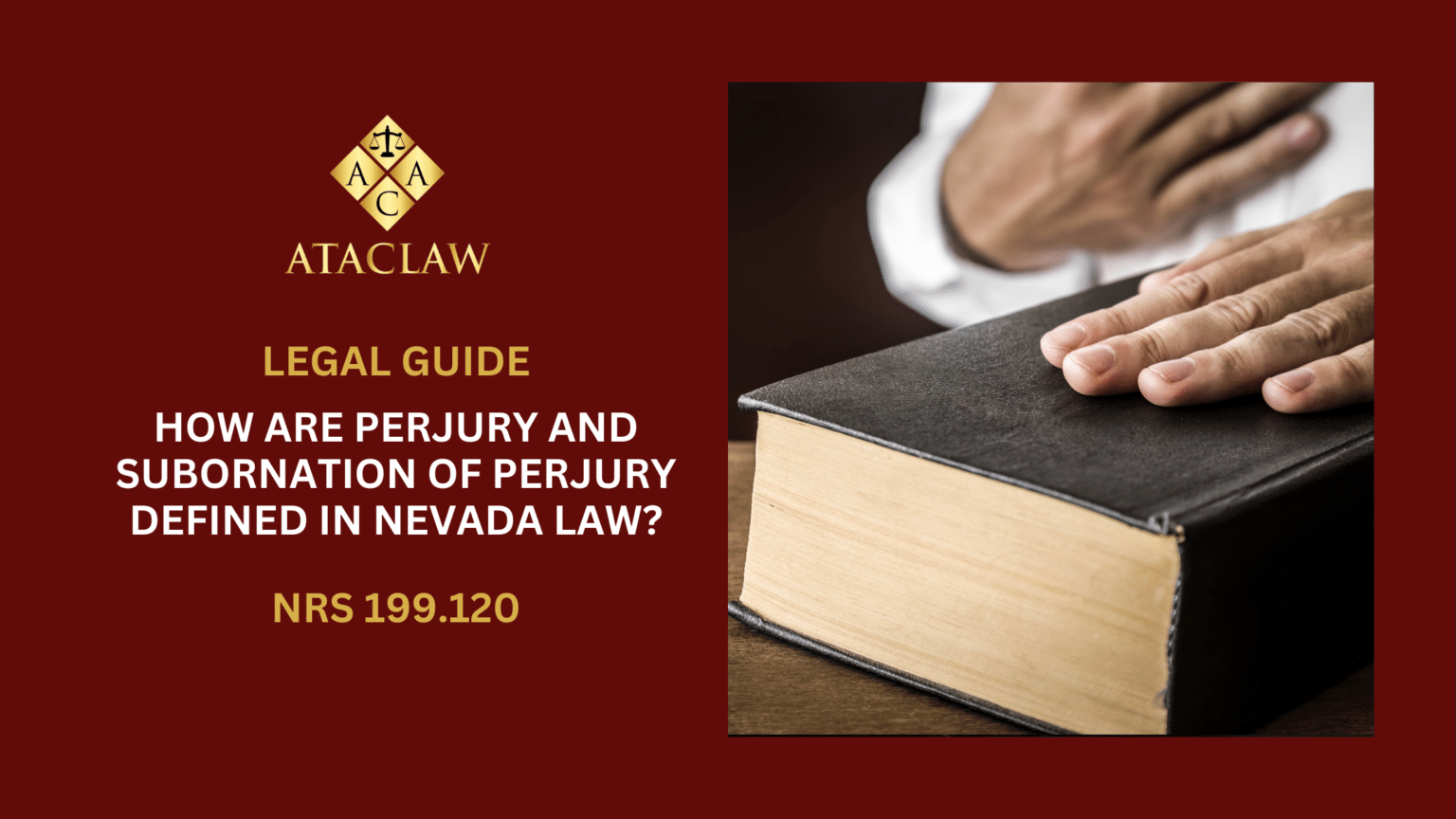Under NRS 202.300, Nevada takes a firm stand against the unlawful possession of firearms by minors. With certain limited exceptions, it’s unlawful for any individual to knowingly allow a child under the age of 18 to have access to a gun. This law serves as a safeguard, aiming to prevent firearms from falling into young hands, which could lead to tragic accidents or intentional misuse.
The repercussions for adults violating this statute aren’t to be taken lightly. The legal system in Nevada considers the provision of a firearm to a minor to be a severe offense, potentially leading to significant legal consequences. Moreover, minors found in illegal possession of a gun may face charges within the juvenile justice system, and depending upon the circumstances and severity of the offense, they could even be subject to adult criminal proceedings.
How Does Nevada Enforce Gun Safety Among Minors?
The Nevada statute stipulates that it’s illegal for anyone to assist or allow a minor under the age of 18 to handle, own, or have control over a firearm, except in situations where the minor is under the guidance or supervision of a parent, guardian, or an adult with legal responsibility for the minor. Simply put, minors are prohibited from possessing firearms without legitimate oversight.
Given the prevalence of firearms in many Nevada households and the tradition among some families of teaching their youngsters hunting or shooting skills, it’s imperative that firearms are carefully and securely stored. Legal issues arise when there’s a failure to supervise minors adequately or to secure firearms properly.
Consider a hypothetical scenario: John, residing in a small town with his 10-year-old son, Alex, safely stores a hunting rifle in their home and has previously taught Alex responsible gun handling. One day, while John is occupied indoors, leaving the rifle unattended on their property, Alex approaches and stands next to it. Should law enforcement notice, John could face arrest for inadvertently allowing Alex access to the firearm.
In this scenario, the law argues that even though John normally secured the firearm and educated Alex on safe handling, by leaving the rifle unattended, he effectively gave Alex access to it. Under the law, Alex’s mere proximity to the unattended firearm is interpreted as him having control over it due to lack of supervision.
It’s important to note that the offense is defined by the unauthorized possession by the minor. If Alex had stayed inside, John wouldn’t be in violation of this particular statute concerning minor possession. Nonetheless, even without actual possession by Alex, John could be at risk for charges related to creating a potentially hazardous situation, under statutes addressing reckless endangerment.
ATAC LAW stresses the importance of understanding Nevada’s firearms laws to prevent inadvertent legal challenges. Vigilance in firearm storage and supervision can safeguard families from potential legal difficulties and, more importantly, protect the well-being of our community’s youngest members.
What Are the Legal Consequences of Allowing a Child to Possess a Gun in Nevada?
Nevada law treats firearm offenses involving minors with utmost severity, especially when the child involved has a history of violence. The penalties vary significantly based on the specifics of the offense and whether it is a first or subsequent violation.
For a First-time Offense: If an adult knowingly allows a violent minor to access a firearm, it is treated as a category C felony. The consequences for this can include:
- 1 to 5 years in Nevada State Prison
- The possibility of fines reaching up to $10,000
For a Second-time Offense: If the same offense is repeated, it escalates to a category B felony with even sterner penalties:
- 1 to 6 years in prison
- Potential fines up to $5,000
Other Circumstances: If the situation does not involve a violent minor or it’s a first offense of a different nature, the act of allowing a minor to possess a gun is classified as a misdemeanor, which carries:
- Up to 6 months in jail
- Fines up to $1,000
Additionally, it’s crucial to note that being convicted of such felonies can lead to the loss of gun rights, which may only be reinstated through a pardon from the State of Nevada.
Keeping Legal Risks at Bay
The implications of allowing a child to access a firearm can be life-changing, not only for the minor involved but also for the adult held responsible. Such legal actions emphasize the importance of robust gun safety practices, especially in households with minors. ATAC LAW strongly advises gun owners and guardians to ensure firearms are stored securely and inaccessible to children, thereby mitigating the risk of unintentional legal complications.
Penalties for Minors
In Nevada, minors under the age of eighteen are generally forbidden from possessing firearms. If a minor is found with a gun, the consequences vary greatly depending on their actions with the firearm.
- Juvenile Court: Minors typically face delinquency proceedings in juvenile court for unlawful possession of firearms. This approach focuses more on rehabilitation rather than punishment, but the specifics depend on the nature of the offense.
- Adult Court: In more serious cases, such as when a minor uses a gun to commit a crime, they may be prosecuted in adult court, facing stricter penalties similar to those an adult would.
Understanding Nevada’s stance on minors and firearm possession underscores the importance of gun safety and legal awareness for young individuals and their guardians.
What Are the Legal Defenses When Accused of Allowing Minors to Possess Firearms in Nevada?
Nevada law, specifically NRS 202.300, identifies several specific situations where adults are not held responsible for minors in possession of firearms. These include scenarios where the adult did not facilitate or consciously condone the minor’s access to a firearm, cases involving minor members of the U.S. Armed Forces, as well as instances where the possession is in line with Nevada’s hunting regulations.
Legal Defenses Against Charges of Gun Possession by Minors
There are key defenses against accusations of enabling minors to illegally handle firearms, which often hinge on the adult’s awareness or intentionality. Under certain circumstances, an adult is justified in not being held liable:
- Accidents During Lawful Activities: Accidents that occur during legal hunting, target shooting, or during sports activities involving firearms may not automatically be deemed criminal. These unfortunate events don’t necessarily imply negligence or intent to break the law.
- Proper Firearm Storage: Adults who secure firearms in a locked container or in a manner that a reasonable person would consider secure are not criminally liable if a minor still manages to access the gun, recognizing that children can be resourceful in unexpected ways.
- Unauthorized Property Access: If an individual illegally enters a property, which then results in a firearm becoming accessible to a minor inadvertently, the adult cannot be faulted if the firearm comes into possession of the minor.
- Firearms in the Hands of Public Officials: There’s no legal fault found with a child acquiring a firearm from a law enforcement officer or a soldier who is actively performing their duties if the acquisition was not due to any negligence on the part of the official.
For example, let’s consider a hypothetical scenario without using real names. Suppose a resident of Las Vegas, Nevada secures her personal defense firearm in a locked drawer, ensuring the key is always with her and out of reach of her underage child. Despite this, her child is challenged by friends to steal the gun and resorts to extreme measures to do so.
In such a case, the parent would likely not face charges for allowing a minor access to a firearm due to the reasonable security measures taken. Responsibilities may arise only if there were clear indications that the minor would undertake such drastic actions. On the other hand, the minor might face juvenile charges for the unlawful possession of the firearm.
Beyond these legal defenses, Nevada law provides specific conditions under which minors are permitted to handle firearms without imposing liability on the adults:
- Firearm Training Exceptions: Minors who are learning safe firearm use may, with parental permission, use firearms for training, practice at firing ranges, participate in shooting competitions, or engage in lawful hunting in areas that don’t require a license and where local regulations don’t restrict firearm discharge.
- Military Participation: Adults are not culpable for aiding or allowing minors who serve in the U.S. Armed Forces from possessing firearms.
- Hunting Regulations: Certain minors, 14 years old and above, can legally use specific types of firearms while hunting, provided they have a valid hunting license and there are no legal prohibitions against them. The conditions govern both the presence of adult supervision and the handling of the firearm during travel to hunting sites.
The implications of allowing a child to access a firearm can be life-changing, not only for the minor involved but also for the adult held responsible. Such legal actions emphasize the importance of robust gun safety practices, especially in households with minors. ATAC LAW strongly advises gun owners and guardians to ensure firearms are stored securely and inaccessible to children, thereby mitigating the risk of unintentional legal complications.
For anyone facing charges related to this matter, acquiring competent legal representation is crucial. ATAC LAW offers expertise in navigating these complex legal waters, providing defense strategies tailored to protect the rights and futures of our clients.
For further legal assistance and to discuss your case with an expert, don’t hesitate to contact ATAC LAW.




